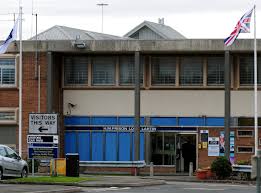I don’t know whether Rolf Harris is in fact a serial sex offender and last week’s judgment by the Court of Appeal leaves the matter in a thoroughly unsatisfactory state.
Before looking at the judgment in detail let’s put a few misconceptions to bed.
First of all, it gives no support to those who suggest that Rolf Harris is the victim of some sort of police or CPS conspiracy. It would be quite extraordinary if there had been and there is no evidence of it. It is true that there was a failure in the disclosure process. Some very old, and as it turned out rather significant, convictions of an important witness were not disclosed at the trial. They were not disclosed because the police had not found them. That does not suggest a conspiracy, it suggests at most a lack of diligence in seeking out old records. Faults in disclosure are endemic in our creaking justice system. Even today, when criminal records are fully computerised mistakes in criminal records are far from unusual. The relevant records dated from the 1960s, long before computerisation, and were found by the police on microfiche after the trial and before the appeal. It is hardly likely that they would have done so had they been part of a conspiracy to suppress the truth.
There are other criticisms of the police which appear in the judgment, or are at least suggested by it; in particular a certain lack of enthusiasm in looking for exculpatory evidence, but there is certainly nothing to suggest a wilful attempt to stitch up an innocent man. That is not to excuse the police of all blame: a lack of diligence in a case as serious as this is a worrying matter, but it is a great deal less worrying than evidence of a conspiracy to pervert the course of justice.
Secondly, the judgment gives no support to some of the unpleasant and unfair comment that has circulated about the original prosecution counsel Sasha Wass QC. There is no criticism of her whatever in the judgment, and no reason to think that she did anything other than a proper and professional job in prosecuting Mr Harris.
Thirdly, anyone searching the internet for information about the case may have come across the information that one of Harris’s jurors was a member of the Metropolitan Police. That is true, but it is not something that featured in the appeal. Opinions differ on whether police officers (or for that matter lawyers and judges) should be able to sit on juries, but the law is clear: they are unless they have some close connection with the investigation. (For what it is worth I have changed my mind on this issue after representing a man at a trial at which the serving police officer (whom I had originally and unsuccessfully asked the judge to exclude) turned out to be the only member of the jury with the wit to notice that the foreman, confused by the judge’s complicated “route to a verdict” direction, had accidentally returned a guilty verdict when they had in fact meant it to be not guilty).
The 12 charges of indecent assault against Mr Harris were based on the evidence of 4 different women. Evidence was also given of alleged criminal behaviour towards a further 5 women or girls which, because it took place abroad, could not form the basis of any charges in this country. The evidence of the 5 “extra-territorial” women was only summarised in the judgment and we have no way of knowing for sure whether the jury believed all or any of them, although given their unanimous verdicts of guilty of every count on the indictment it seems very likely that they were inclined to disbelieve anything Mr Harris said. Continue reading “Rolf Harris should have been given a retrial”




